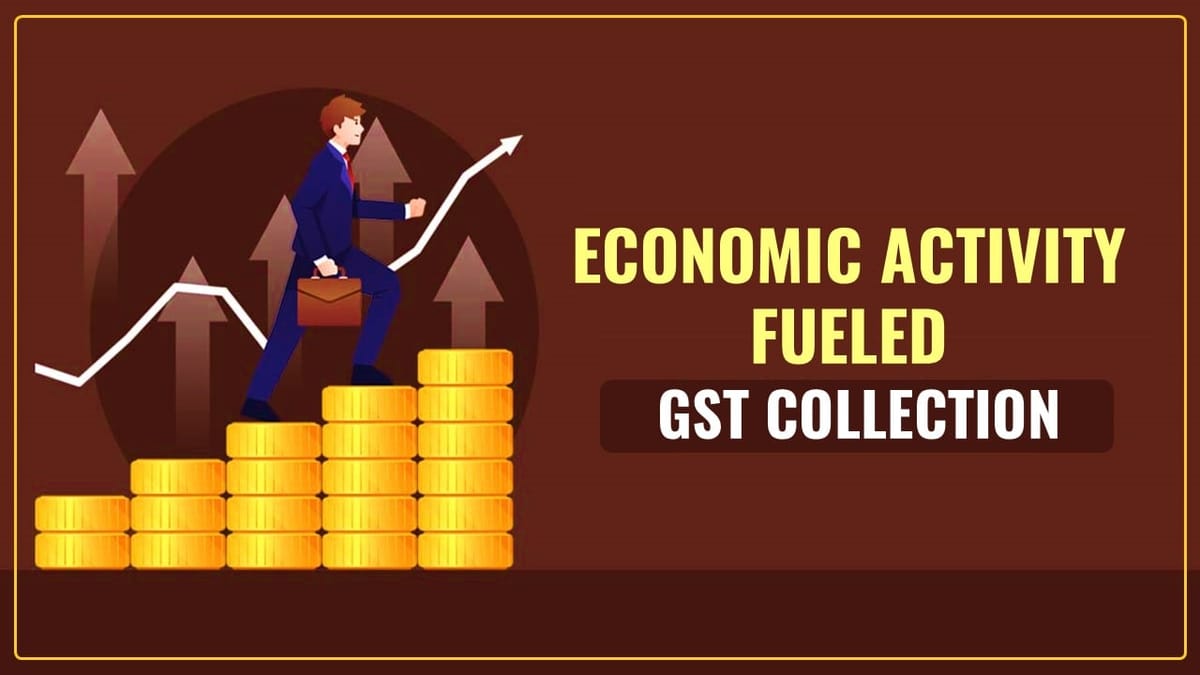CBIC has addressed the increase in GST collections for the month of October, refuting the misconception that it was exclusively due to notices issued by tax authorities.
Reetu | Nov 10, 2023 |

CBIC Chairman Clarifies: Economic Activity Fueled GST Collection rather than Notices
The Central Board of Indirect Taxes and Customs (CBIC) has addressed the increase in Goods and Services Tax (GST) collections for the month of October, refuting the misconception that it was exclusively due to notices issued by tax authorities.
Sanjay Kumar Agarwal, the head of CBIC, underlined that the increase in GST collections was primarily driven by increased economic activity across the country.
This clarification addresses claims that the increase in collections was solely the result of notices sent to specific industries, particularly online gaming companies.
Agarwal went on to say that the notices sent to online gaming companies were sent because the statutory time limit for fiscal year 2017-18 was approaching, and that they were not the primary cause of the revenue increase.
He underlined that the increase in GST receipts may be ascribed to the country’s economic activity, reflecting a healthy and robust economy.
It is worth mentioning that GST income increased 13.4% in October, hitting Rs 1.72 lakh crore. This was the second-highest collection since the GST regime was implemented.
The biggest collection came in April, when GST revenue was Rs 1.87 lakh crore.
Agarwal stated that there was a large increase in GST revenue from Integrated GST on imports, owing to an increase in import quantities. This might be due to businesses refilling their stocks and inventories to meet increased demand, or it could be due to the impending holiday season.
Agarwal also outlined the department’s approach to e-invoicing. He emphasised the requirement for enterprises with a yearly turnover of more than Rs 5 crore to produce e-invoices from August 1.
While recognising the legal obligation, he stated that compliance with e-invoicing among eligible taxpayers was not particularly high.
To address this, the government intends to put out an advisory encouraging enterprises to use e-invoices for business-to-business transactions.
The CBIC has implemented e-invoicing procedures for firms in stages, beginning with major corporations with turnovers surpassing Rs. 500 crore and gradually decreasing the threshold to Rs. 5 crore over a three-year period.
In case of any Doubt regarding Membership you can mail us at contact@studycafe.in
Join Studycafe's WhatsApp Group or Telegram Channel for Latest Updates on Government Job, Sarkari Naukri, Private Jobs, Income Tax, GST, Companies Act, Judgements and CA, CS, ICWA, and MUCH MORE!"